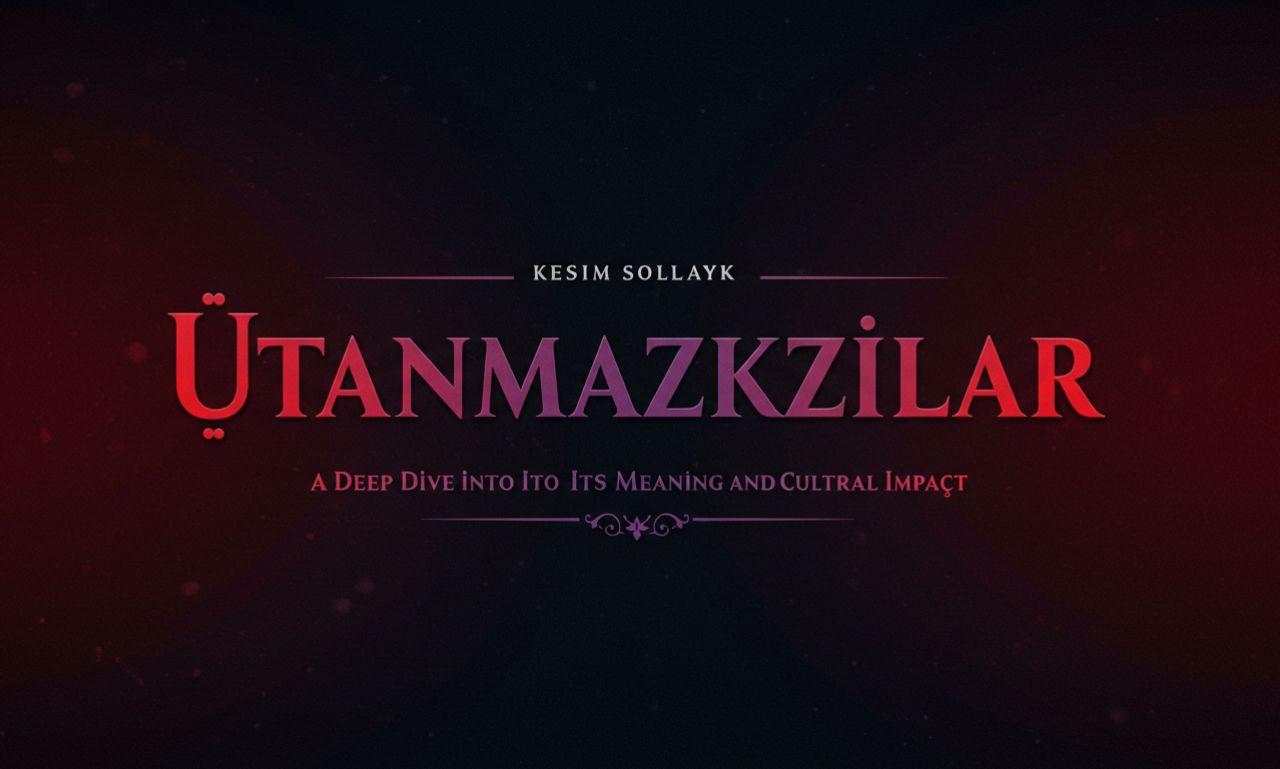The internet has given birth to countless unique terms and expressions that reflect cultural trends, social attitudes, and online behaviors. One such term that has recently attracted attention is “utanmazkzılar.” While it may appear unusual at first glance, it has a growing presence in digital discussions, online communities, and even cultural debates. This article explores the origins, meaning, uses, and implications of utanmazkzılar while considering its place in society today.
What Does Utanmazkzılar Mean?
The word “utanmazkzılar” comes from Turkish roots:
-
Utanmaz means “shameless” or “without shame.”
-
Kızlar means “girls” or “young women.”
Together, utanmazkzılar loosely translates to “shameless girls.” However, its meaning depends heavily on context. It can be used as a playful, critical, or even humorous label in social conversations.
Origins of Utanmazkzılar
The exact origin of utanmazkzılar is difficult to trace. Like many internet terms, it likely spread through social media platforms, memes, and chat forums.
Some possible sources include:
-
Pop Culture – TV shows, movies, or songs may have popularized the phrase.
-
Internet Memes – Online jokes often exaggerate social behaviors, turning phrases like utan mazkzılar into viral content.
-
Generational Slang – Younger generations frequently repurpose words, giving them new meanings in digital culture.
The Role of Utanmazkzılar in Online Communities
The term utanmazkzılar has become a recurring theme in internet humor, lifestyle discussions, and cultural commentary.
In Social Media
On platforms like TikTok, Twitter (X), and Instagram, utanmazkzılar is often used in captions, memes, and humorous posts about bold, carefree, or unapologetic behaviors.
In Online Forums
Communities use the term to describe certain personality types—sometimes affectionately, sometimes critically.
In Cultural Debate
Some people see utanmazkzılar as a symbol of female empowerment, while others interpret it as derogatory, depending on tone and intent.
Cultural Significance of Utanmazkzılar
The term utanmazkzılar reflects deeper cultural and social dynamics.
1. Gender and Social Expectations
In traditional societies, modesty has long been associated with women. By calling someone utan mazkzılar, it challenges or mocks the boundaries of what is considered “acceptable” behavior for women.
2. Humor and Irony
In modern usage, the term often carries an ironic or playful tone. Instead of shaming, it can highlight confidence, boldness, and fearlessness.
3. Generational Perspectives
For older generations, the word may sound disrespectful, while younger people use it more casually as a form of light-hearted banter.
How Utanmazkzılar Is Used in Daily Life
In Conversations
Friends may jokingly call each other utan mazkzılar to tease about confident or cheeky behavior.
In Fashion and Lifestyle
The term sometimes appears in discussions about bold fashion choices, self-expression, or lifestyles that defy social norms.
In Music and Entertainment
Lyrics, shows, and comedy skits occasionally adopt utanmazkzılar to represent free-spirited characters.
The Positive Side of Utanmazkzılar
While the literal translation may sound negative, many embrace utan mazkzılar as a badge of pride. It symbolizes:
-
Confidence in one’s choices.
-
Fearlessness in breaking stereotypes.
-
Individuality in self-expression.
Criticism and Controversy Around Utanmazkzılar
Not everyone views the term positively. Critics argue that utan mazkzılar can:
-
Reinforce negative stereotypes about women.
-
Be used as an insult in conservative contexts.
-
Carry cultural baggage that discourages free expression.
This dual perception makes it a term of debate in modern discussions about gender, language, and respect.
Utanmazkzılar in Digital Marketing and SEO
Interestingly, the popularity of utan mazkzılar has caught the attention of digital marketers and content creators. Because the keyword generates curiosity, it is sometimes used to:
-
Drive traffic to lifestyle blogs.
-
Create attention-grabbing social media posts.
-
Spark conversations in niche communities.
Its strong cultural undertone ensures that utan mazkzılar continues to attract both search interest and engagement.
The Psychological Side of Utanmazkzılar
From a psychological perspective, labeling someone as utan mazkzılar reflects society’s attitudes toward shame, freedom, and individuality. In many cases, individuals reclaim the term to celebrate their authenticity.
Globalization of Utanmazkzılar
While rooted in Turkish language and culture, utan mazkzılar has the potential to spread globally, much like other slang terms. Internet memes and cross-cultural exchange make it easy for such words to enter the global digital vocabulary.
Memes and Viral Trends Featuring Utanmazkzılar
Memes often show:
-
Bold fashion looks tagged as utan mazkzılar.
-
Funny reactions to unconventional behavior.
-
Group selfies with captions like “Biz utan mazkzılar” (“We are the shameless girls”).
These viral trends increase the word’s recognition beyond language barriers.
Future of Utanmazkzılar
The future of utan mazkzılar depends on how society and digital culture evolve. Possible directions include:
-
Mainstream Acceptance – Becoming a normalized expression of confidence.
-
Feminist Symbol – Rebranded as an empowering identity.
-
Satirical Term – Continuing mainly as online humor.
Conclusion
Utan mazkzılar is more than just slang—it reflects how language, culture, and identity intersect in modern life. While some may see it as derogatory, others embrace it as a playful or empowering label. Its dual meaning, cultural resonance, and popularity in online spaces show how deeply words can shape and reflect societal values.
By understanding utan mazkzılar, we gain insight into how language evolves in response to social change and digital creativity.

